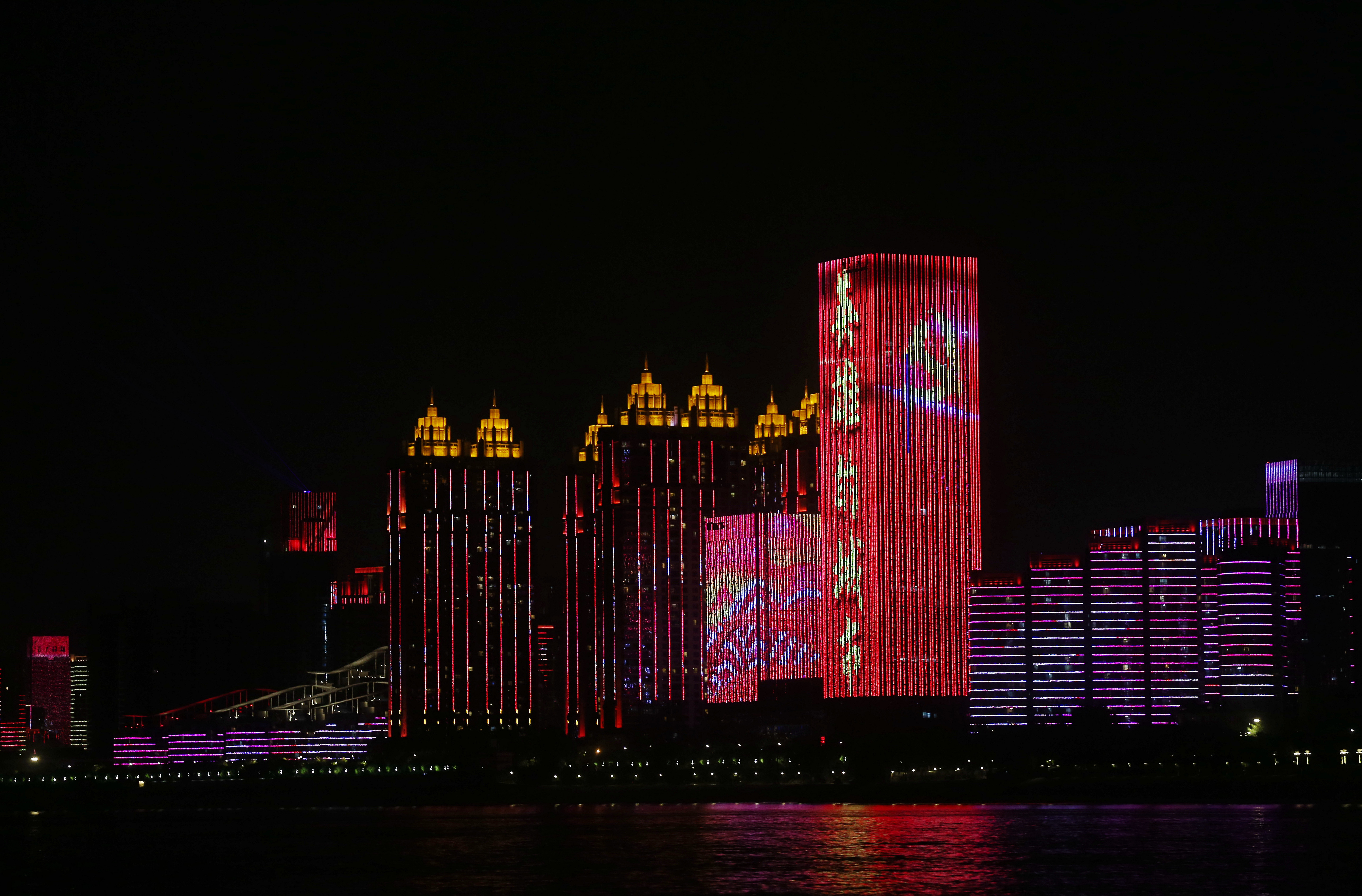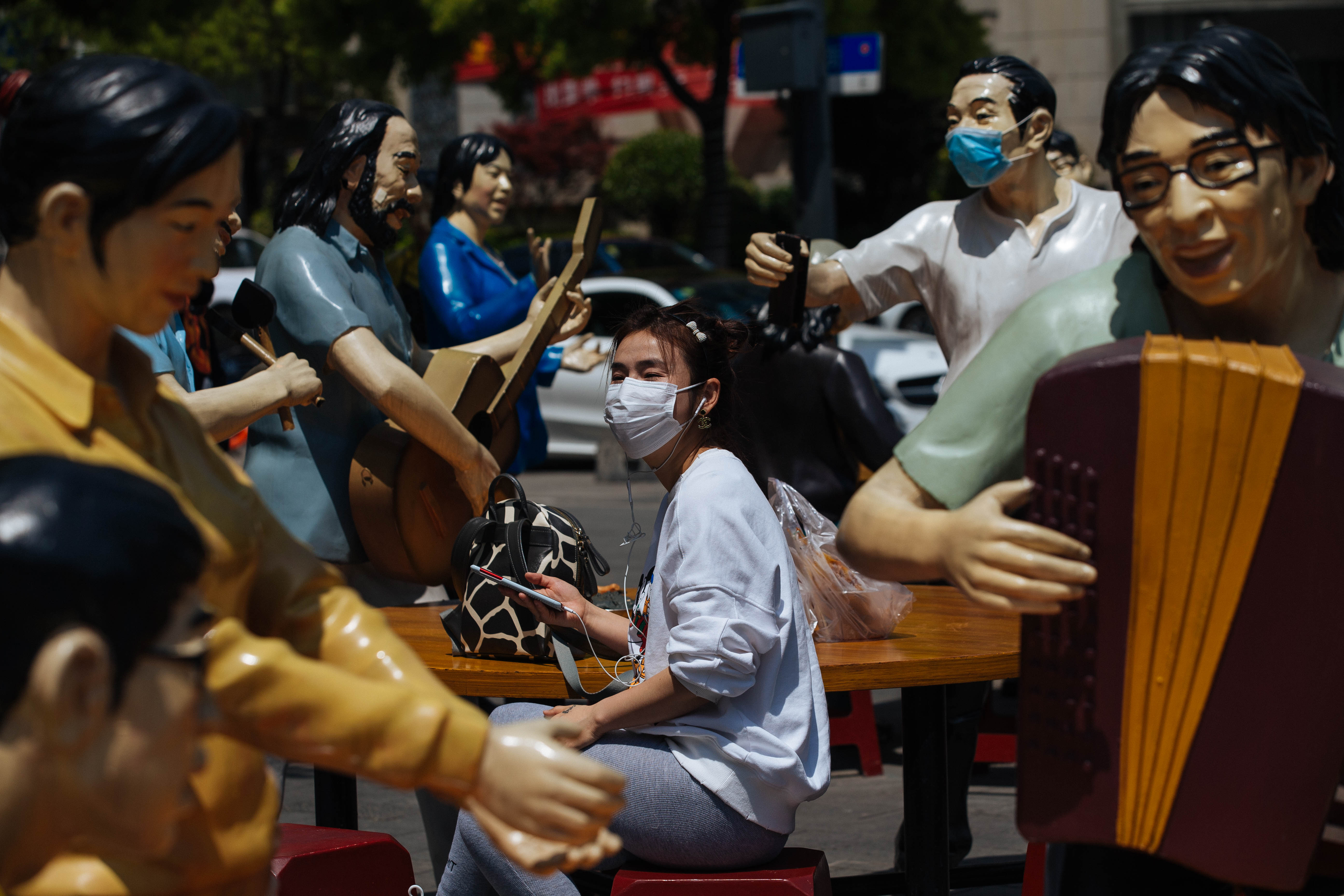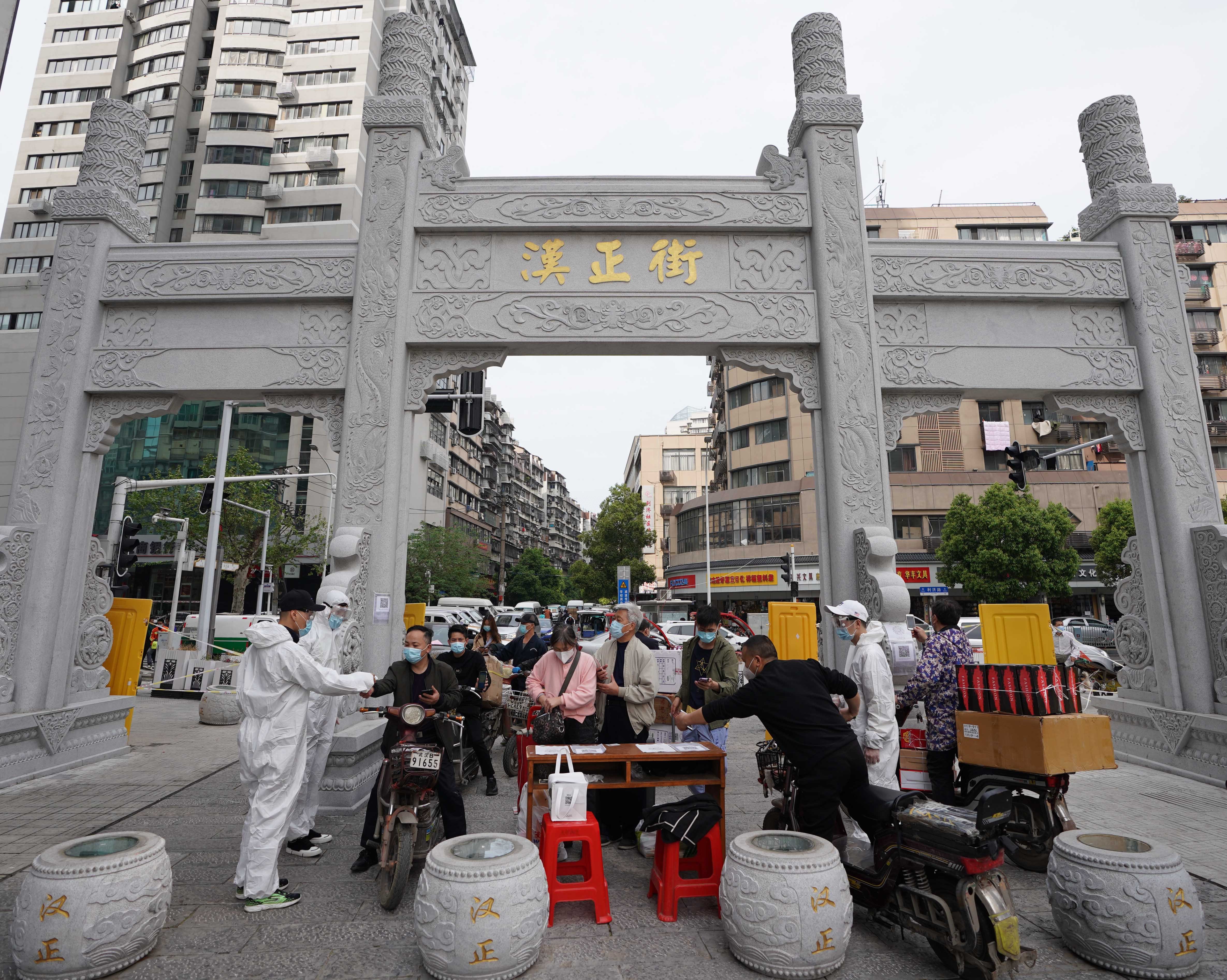Recently, many Western media like the New York Times and Deutsche Welle, which had been critical of China's virus battle, claimed to have dug out another treasure after they found a daily chronicle of Fang Fang, who "recorded" Wuhan residents' lives under the lockdown, was to be published in the US and Germany.
Media outlets such as BBC also cited the stories of Wuhan woman Li Lina, who struck a gong on her balcony, crying for a bed for her mother in critical condition; the death of a Wuhan film director's four family members, who were denied access to treatment because hospital beds was strained, to describe Wuhan's "desperation."
Li told the Beijing News that people should not label her as "tragic" just because of her action. "We suffered difficulties at the early stage. But help was pouring in afterward. My mother's recovery could not be attributed to me alone."
Thirteen-year-old Jiang Xiao (pseudonym) lost her grandfather and mother to the virus; and their death also affected her grandmother. Jiang soon lost all legal guardians because her father disappeared years ago after divorcing her mother.
Jiang's aunt, who requested anonymity, said that because of financial dilemma, she (the aunt) tried to reach out to more people for help by posting help-seeking information on China's Twitter-like platform Sina Weibo.
"Within days I received more than 30,000 yuan ($4,470) from netizens all over the country... After discussing with other family members, we decided it would be best to reject the donations, and seek help from a charity," Jiang's aunt told the Global Times.
"We've been bothering many people - volunteers, community workers and strangers - since the virus struck my family members. But we could only pay back with a grateful heart. Now, the deceased are resting in peace. We must carry on," she said.
When Wuhan people were urged to stay indoors to avoid further contagion, they faced great difficulty buying daily necessities and food, which propelled Zhang Zheyan to go out more often.
Zhang, a manager of a Wuchang district market ordered to be closed after the epidemic broke out in late January, shouldered the responsibility of delivering food to more than 500 households during the lockdown.
"I slept only two hours every day as I had to collect vegetables from the surrounding villages and send them to families who could not go out," Zhang said. When the task became too heavy for Zhang, he encouraged his son and daughter to help.
"Who isn't afraid of the virus? But someone has to solve the difficulties caused by the pandemic. If everyone thinks only of himself, everyone just stays home and does nothing, we might not be killed by the virus; we would starve first."
After the virus was first reported in Wuhan, many foreign media, include CNN and Reuters, reported that "Wuhan is the unwanted face of China's coronavirus outbreak," indicating Wuhan residents were discriminated all over China.
Chen Xingxu said he once escorted Yan Yiwei, a one-month-old newborn who had contracted the virus, to Nanjing for treatment in early February when Wuhan was still under a strict lockdown.
Chen said they drove passed a checkpoint in nearby Anhui Province. The inspectors, who were leisurely talking and smoking by the road, suddenly stood up when Chen's car, with a Wuhan license plate, approached.
The inspectors shouted at Chen, "Keep your window ajar!" when he lowered the car window and tried to explain the situation. After hearing Chen's explanation, the inspectors let the car pass. "I heard them shouting 'Wuhan Jiayou [add oil, Wuhan]' behind me when I drove away," Chen said. The night when Wuhan finally lifted its 76-day lockdown, Chen gazed at Wuhan's dark sky, which was illuminated by a light show of celebration, and joined the countdown of the bell tower to greet the historic moment. "I laughed until tears filled my eyes. It was the moment I finally realized why Dr Zhong Nanshan said Wuhan is a heroic city."
"No one is born strong," Chen said, "We are forced to be."


